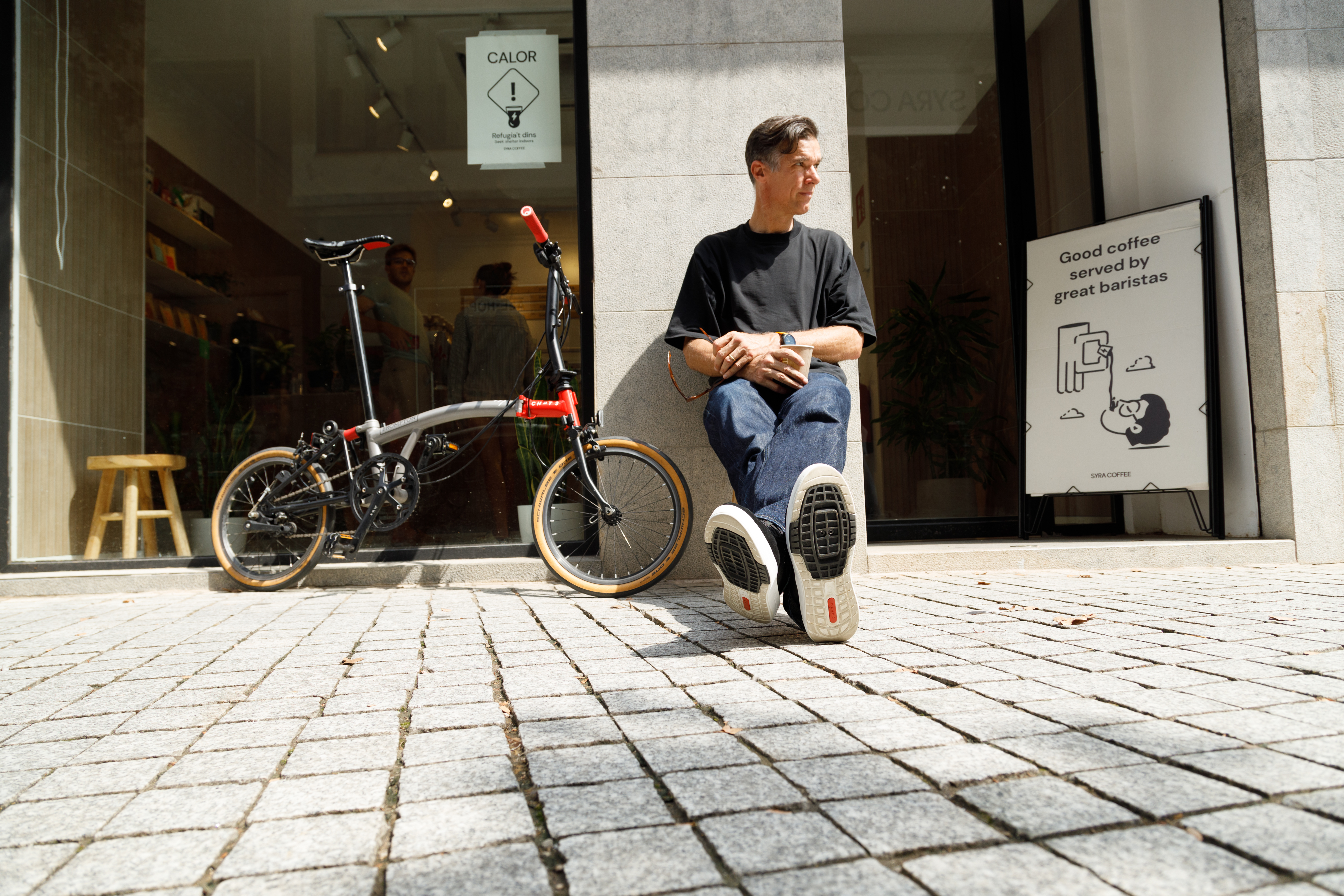
Former British rider David Millar believes the best way to increase safety in cycling is to treat it in a similar way to how doping was treated during the latter half of his career - to create a culture of respect and self-policing and empower riders to call out others who put the peloton at risk.
The Scotsman, who spoke to Cyclingnews following the closure of his clothing brand CHPT3, praised the UCI's work, describing it as a thankless task. He's also optimistic about the newly introduced yellow card system, which punishes riders who put the safety of the peloton at risk and can lead to bans of increasing severity depending on the number received.
Millar explained there was no 'magic stick' to fix all of the peloton's safety concerns, but that recurring discussions were key to keeping safety at the forefront of riders' minds.
"It's never going to be a safe sport," he began when asked about the recent debate on using gear restrictions to slow the peloton down.
"I think when they have these ideas [such as] the gear restrictions, it's still going to be insanely fast. It's still going to be people fighting for position.
"Bike racing is just so mad in the sense that you can have a point-to-point 200 kilometres. There's no way you can make those 200 kilometres safe 100 per cent. We've had the three-kilometre rule, the certain barriers. We've experimented with different three-kilometre or five-kilometre rules last year at the Tour [de France].
"I think this experimentation will always be part of cycling. Perhaps that's how we make it safer, just by constantly experimenting, because it raises the vigilance levels, and it allows us to interrogate and raise awareness.
"Unfortunately, professional cycling is inherently a very high-risk sport."
Since his retirement in 2014, Millar has strongly advocated for increasing rider safety. In 2018, he ran for the presidency of the Cyclistes Professionnels Associés (CPA), an organisation whose primary aim is to protect the rights and interests of riders, losing out to Gianni Bugno.
When asked where he would focus his efforts, if he were put in charge for a day, he praised the UCI's work, before reiterating his earlier point and adding that the peloton itself holds the key to improved safety.
"I think [The UCI] is doing a really good job at the moment. [In particular] the SafeR initiative that it brought in. It's a thankless task.
"I wouldn't say it's impossible, but the fundamental problem is there is no magic stick. The variables in road cycling are countless. You could borderline say infinity, the amount of different things that could happen in a road race.
"A few years ago, it was like, well, the peloton, no one respects each other. I think the biggest thing that can help cycling is a cultural shift within the peloton to being very respectful of each other.
"There are so many variables that are uncontrollable, but the one that is controllable is how the peloton rides, how the riders treat each other, [and] the risks they take. The biggest crashes happen when individual racers take risks, and often it's a zero-sum game.
"If you're willing to push and challenge that zero-sum game. It's not just you that's going down, it's others. So I think the biggest one is just this constant awareness.
"A little bit like doping, and how we created this anti-doping culture where the peloton was self-policing, it became [that] there was no more Omerta. Everyone keeps an eye on each other. You will speak out if you've got suspicions."
The 'Omerta' Millar mentions is the code of silence that existed in the peloton during cycling's doping era in the late '90s and early '00s.
Miller himself speaks as a convicted doper. In 2004, he was arrested by French police and later confessed to using EPO in 2001 and 2003. In August 2004, he was handed a two-year ban from the sport, stripped of his 2003 individual time trial world title, and fired by his Cofidis team. He returned to the sport in 2006 and spent the latter half of his career as a staunch anti-doping advocate, riding for the Garmin-Sharp team, which later morphed into the EF Education-EasyPost team we know today.
"In many ways, that has to happen with riders' safety within the peloton," he continued. "They have to not be afraid to call each other out. There has to be yellow cards. There has to be an ability, even within the peloton, for riders to call out somebody who rides dangerously. Because at the moment that doesn't exist.
"The only people who can truly control this is the peloton. Limiting gears doesn't really change anything. It's still the peloton, still the riders, it's still the human condition to race. So how do you create that culture of safety and awareness within the peloton so they do self-police it?"







